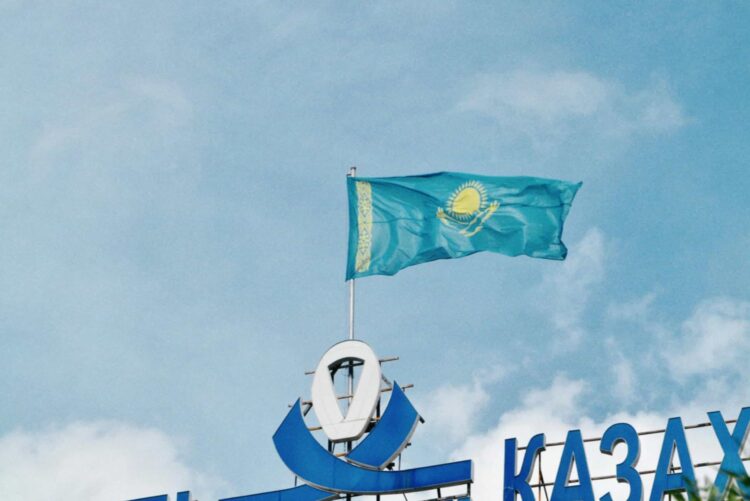Kazakhstan is positioning itself to become the leading cryptocurrency hub in Central Asia by easing regulatory restrictions and fostering blockchain innovation, according to Kanysh Tuleushin, the country’s first vice minister of digital development, innovation, and aerospace industry.
In a recent op-ed, Tuleushin highlighted that lifting restrictions on digital asset trading nationwide could significantly boost the economy and add hundreds of billions of tenge to the national budget.
Signing in Kazakhstan ????????
Left to right: CZ, President of Kazakhstan Kassym-Jomart Tokayev, Minister of Information Technology Bagdat Mussin
(Photo was from a while ago.) pic.twitter.com/Antvri8J5A
— CZ ???? BNB (@cz_binance) June 22, 2023
Tuleushin advocates for comprehensive crypto regulations, including legalising digital asset trading across Kazakhstan, establishing transparent exchanges, and deploying legal crypto ATMs. He believes these measures will attract investment and stimulate growth in the sector.
A key element of Kazakhstan’s strategy involves integrating crypto mining with the country’s energy infrastructure. Tuleushin pointed out that, similar to models in the United States, crypto miners could help stabilise the power grid by consuming surplus energy. The government’s 70/30 energy initiative allows foreign investors to upgrade thermal power plants, with 70% of the energy supplied to the national grid and 30% allocated to miners. Additionally, the plan includes using associated petroleum gas from oil fields to power mining data centers, reducing emissions and generating revenue for oil producers.
Kazakhstan’s crypto mining industry has already contributed $34.6 million in taxes over the past three years. The government has registered 415,000 mining machines, issued 84 licenses, and accredited five mining pools. Crypto trading on the Astana International Financial Centre (AIFC) exchange surged from $324 million in 2023 to $1.4 billion in 2024, with new regulations requiring miners to sell 75% of mined assets through AIFC platforms starting in 2025.
Despite these advances, much of Kazakhstan’s crypto trading remains unregulated outside the AIFC, with an estimated $4.1 billion turnover in 2023 occurring beyond government oversight. Authorities have shut down 36 illegal exchanges and frozen $4.8 million in assets in 2024, also disrupting two Ponzi schemes.
Kazakhstan is also developing a central bank digital currency (CBDC), the digital tenge, with a pilot launch planned for 2025. The country’s crypto-friendly stance aligns with regional trends, as neighbouring Uzbekistan and Kyrgyzstan also promote digital asset adoption. Notably, Binance recently signed an agreement with Kyrgyzstan to introduce crypto payment infrastructure and blockchain education.
Kazakhstan’s regulatory reforms and energy integration plans could establish it as Central Asia’s premier crypto hub, attracting investment and fostering innovation in the blockchain space.
If you want to read more news articles like this, visit DeFi Planet and follow us on Twitter, LinkedIn, Facebook, Instagram, and CoinMarketCap Community.
“Take control of your crypto portfolio with MARKETS PRO, DeFi Planet’s suite of analytics tools.”





















